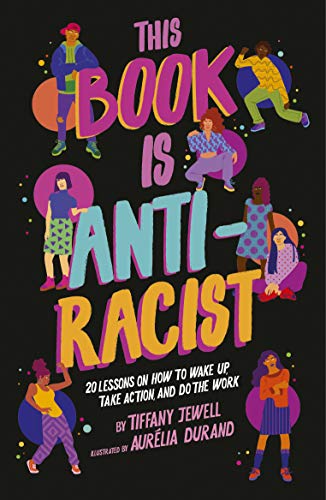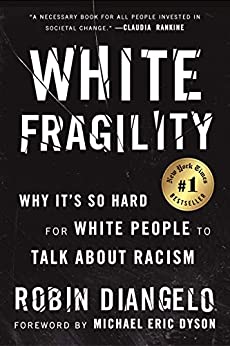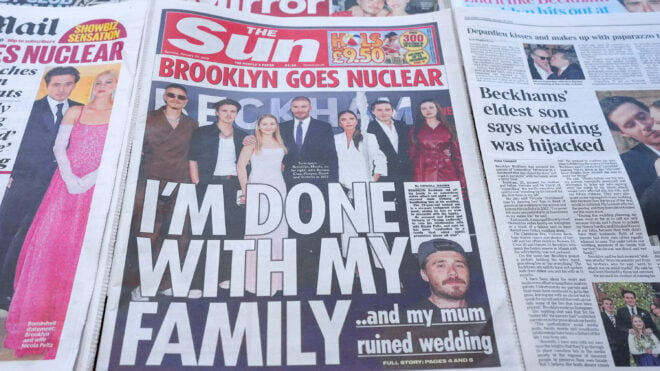
Parents, gather round. I would like to take an informal virtual poll. Please raise your hand if you have ever been wrong or expect to be wrong in the future. Oh, WOW. From the show of hands, it certainly looks like we all know that we can't be right all the time, which means that sometimes we're going to be wrong, right? The reason I'm asking is that given the current state of affairs regarding tackling the manifestations and real-life consequences of racism in society, no one seems to want to admit that they are wrong, and how can we ever get it right if we can't even admit when we are wrong? This is why I propose that, as parents, we start modeling how to accept responsibility for our wrongs — intentional or otherwise — to our children if we really want to be anti-racist.
Now, before we go any further, I want to make it clear that I am starting from the premise that racism exists and is something we should all be fighting against. No ifs, ands, or buts about it. I'm not here to convince you that racism is real and built into the institutions and systems of our lives and country. I know it's real, just like I know the sky is up and the ground is down. I've seen it in action. I've experienced it on both macro and micro levels. I've watched my loved ones deal with it. I've seen the same video footage we've all seen of Black human beings being killed by police officers in a way that wouldn't happen to white human beings.
For me, trying to explain to you that racism is real would be like trying to explain to you that the Earth is round or that gravity exists. I don't have the patience or emotional fortitude to even try. But if you still need to be convinced that racism is real and very much affecting all of our lives, then I suggest you take the time to read the very thoughtful works of others who have done the research, unpacked history, and broken down how racism works on a systemic and personal level.
Suggested Anti-Racism Reading List

- White Fragility: Why It’s So Hard for White People To Talk About Racism by Robin DiAngelo
- How To Be Less Stupid About Race: On Racism, White Supremacy, and the Racial Divide by Crystal Marie Fleming
- How To Be an Antiracist by Ibram X. Kendi
- This Book Is Anti-Racist: 20 Lessons on How To Wake Up, Take Action, and Do the Work by Tiffany Jewell and Illustrated by Aurélia Durand
- “Letter From Birmingham [White] Male” by Seth Griffin
- “Children Are Not Colorblind: How Young Children Learn Race” by Erin N. Winkler, PhD
OK, now back to what I was saying about how most of us have a hard time admitting to being wrong or even considering that we could be wrong. It makes sense. Think about it: Were you ever taught how to listen when someone calls you out, to be self-critical, and to accept that you are wrong when you are actually wrong? Or do you, like most people, get instantly defensive because even the thought of being wrong makes you feel uncomfortable or attacked or put on the spot, and how dare anybody do that to you?
Why Admitting We Are Wrong Is Crucial

“If I believe that only bad people are racist, I will feel hurt, offended, and shamed when an unaware racist assumption of mine is pointed out. If I instead believe that having racist assumptions is inevitable (but possible to change), I will feel gratitude when an unaware racist assumption is pointed out; now I am aware of and can change that assumption.”
— Robin DiAngelo, White Fragility: Why It's So Hard for White People To Talk About Racism
I think one of the reasons why we have such a hard time listening to criticism and admitting when we are at fault is because being wrong makes us feel bad about ourselves, and we equate feeling bad about ourselves with being a bad person.
For example, if you get called out for making a racist comment — and you don't consider yourself racist and even go so far as to think that racist people are bad — then admitting that you made a racist comment might feel like you're admitting to being a bad, racist person. So instead of using the experience as an opportunity to listen, learn, and grow, you deny, deny, deny; get mad; and accuse the person or people calling you out of things like being "too sensitive" or not getting that it "was a joke."
But where is the growth in that? How do we become better people and build a better society if we can't deal with the discomfort that comes with being wrong? It's not fair to expect to always be comfortable or always feel good about ourselves — especially when racism can cost people their lives.
Using Our Wrongs as an Opportunity To Do Better
“Do the best you can until you know better. Then when you know better, do better.”
— Maya Angelou
The best thing that can come out of us all learning to listen and admit when we are wrong is that we can then change for the better and we can model this behavior to our children, who can then model it for others and so on and so forth until we change this racist world. Your kids might not ever get to see you in a situation where you get called out on problematic behavior in public, but that doesn't mean that you can't model how to accept responsibility for being wrong to them.
You can do it at home by admitting when you are wrong, because what parent hasn't been wrong at some point? And you don't have to wait to be called out on your wrongness.
Let's say you fly off the handle over something your kids did and behave in a manner you are later not proud of. Once you've calmed down, you can apologize for how you behaved and tell them that in the future you will do your best to be better by taking a moment to breathe before reacting. Or let's say you make a comment or joke in front of your kids that you afterward realize is perpetuating racism; you can take responsibility, apologize for saying it, and explain to them why what you said is problematic and how you are working to let go of all the racist notions that have made their way into your thinking.
And if your kids do call you out, LISTEN to them. Listen to what they have to say to you, and consider the possibility that they might be right before you dismiss what they are saying. If you are wrong, don't make excuses unless you want them to make excuses when they are wrong. Instead, thank them for pointing out your mistake, apologize, and let them know you will work on doing better next time.
Admitting that you are wrong to your kids can go a long way in helping them admit when they are wrong. And that's important because we are all wrong sometimes.




